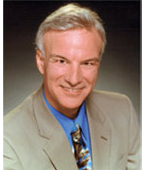
Host: Anti-Aging Psychologist Dr. Michael Brickey
Guest: Barbara Strauch
Broadcast and podcast on webtalkradio.net. The podcast is also below.

It is hard to see the big picture trying to digest a pile of journal articles, press releases, or newsletter and newspaper articles. Barbara Strauch (pronounce Starch) is very talented at putting research in perspective with an appreciation of the importance of the quality of research design and a knack for writing about it in a way that speaks to both scientists and the public. She is the author of The Secret Life of the Grown Up Brain.I find her findings important in three ways:
- reassurance that a lot of experience in middle age, like daydreaming and forgetting things, is normal for middle age and not a reason for alarm
- that there are neurological improvements as including grown of new neurons, even in the hippocampus, mylenization of nerves that helps neurons function as much as 100% more efficiently, and the amygdala shifting from an emphasis on negative events to and emphasis on positive events.
- longitudinal research discrediting the midlife crisis and empty nest sage theories.
Myths we covered included:
- There is no new neuron growth after puberty
- There are no structural changes after puberty
- The midlife crisis and empty nest syndrome theories were based on small poorly designed studies that have been discredited by longitudinal studies
- The brain isn’t just like a computer in that it is constantly adapting and rewiring itself
- many nutrients can pass the blood brain barrier
- far from aging being downhill, people tend to be happier with age, with happiness peaking around age 65
How middle aged brains are different
- myelin-peaks at age 50 (greater bandwidth)
- slower processing speed
- reorganize—both sides of the brain
- biased toward the positive amygdala
- more knowledge
- better emotional control
- seeing patterns and big pictures, anticipate situations, templates
- estrogen and menopause
- value on experiences, relationships vs. novelty
- poorer at multi-tasking
- better vocabularies
- nutrients do cross the blood brain barrier
- inflammation
- calmer, happier
- how to maintain, even improve skills
- education—brain reserve
- exercise-aerobic
- nutrition
- socialize
- stretch cognitively
Barbara Strauch’s website is www.grownupbrain.com Dr. Brickey’s other websites are www.DrBrickey.com and www.Anti-Aging-Speaker.com.
